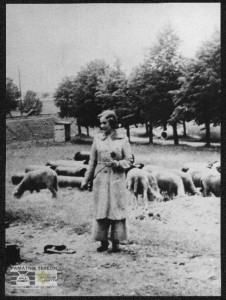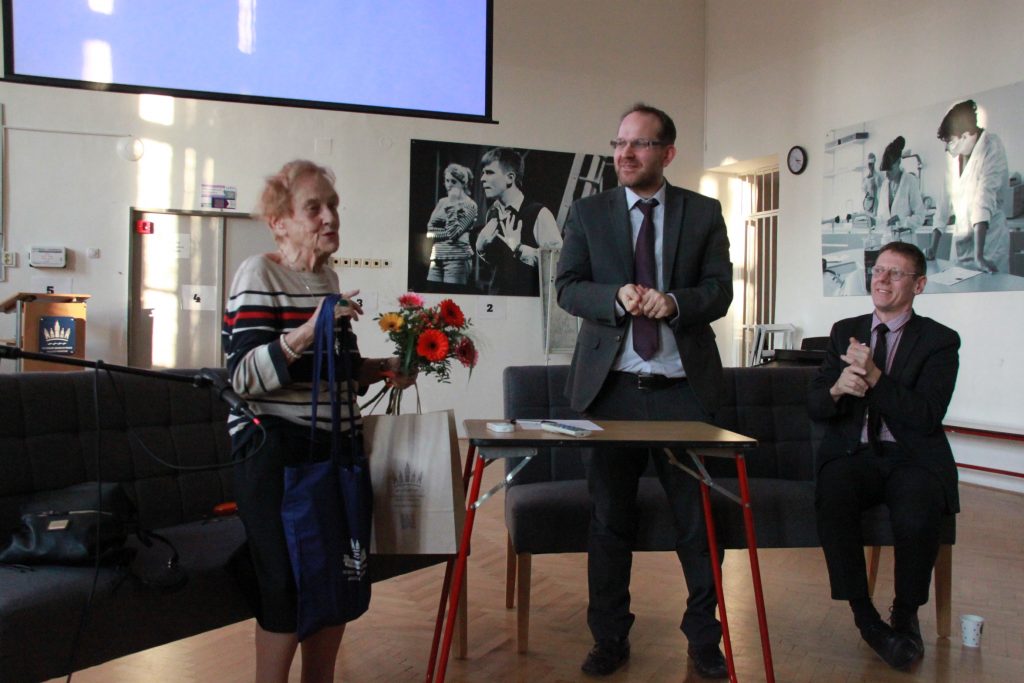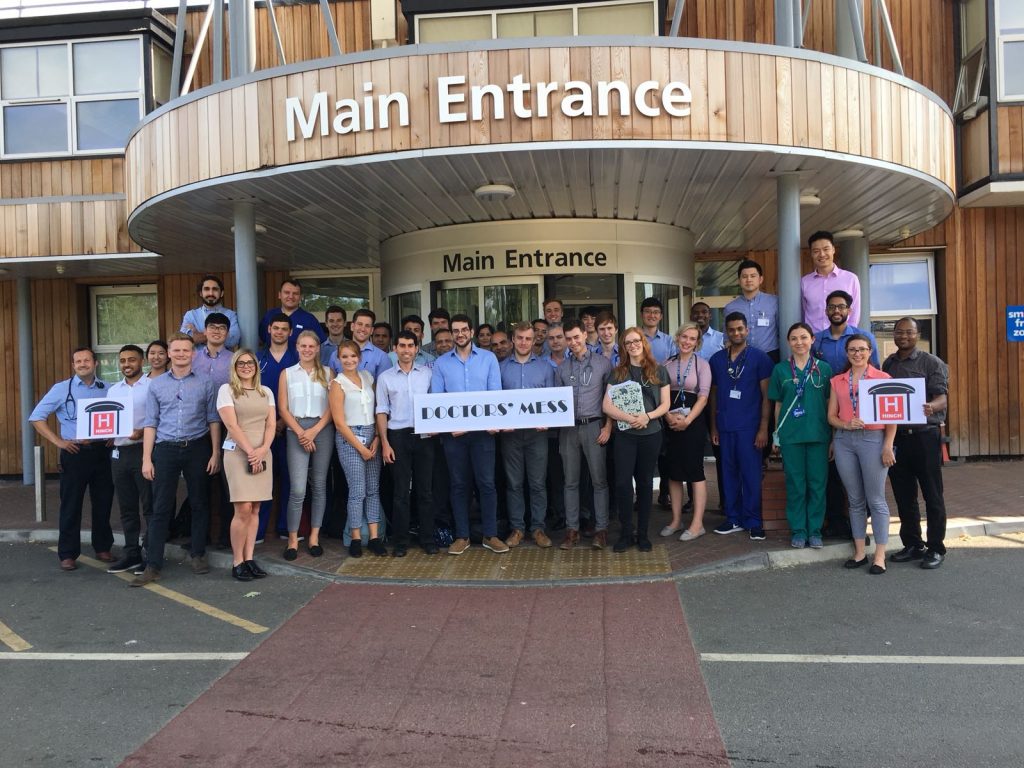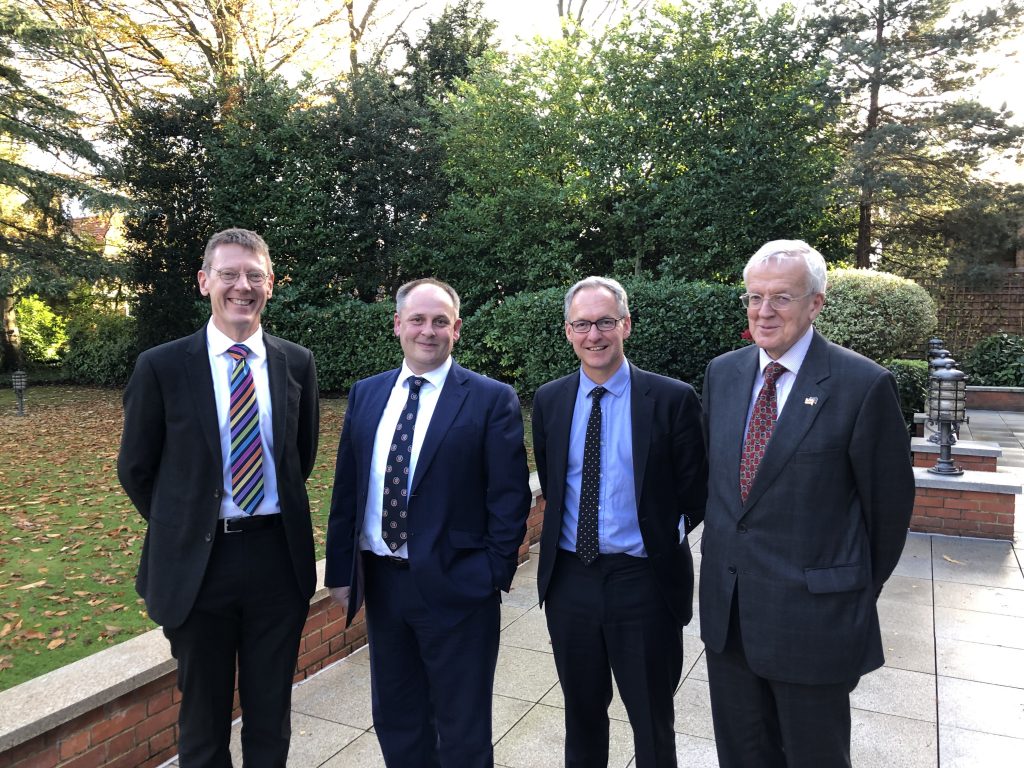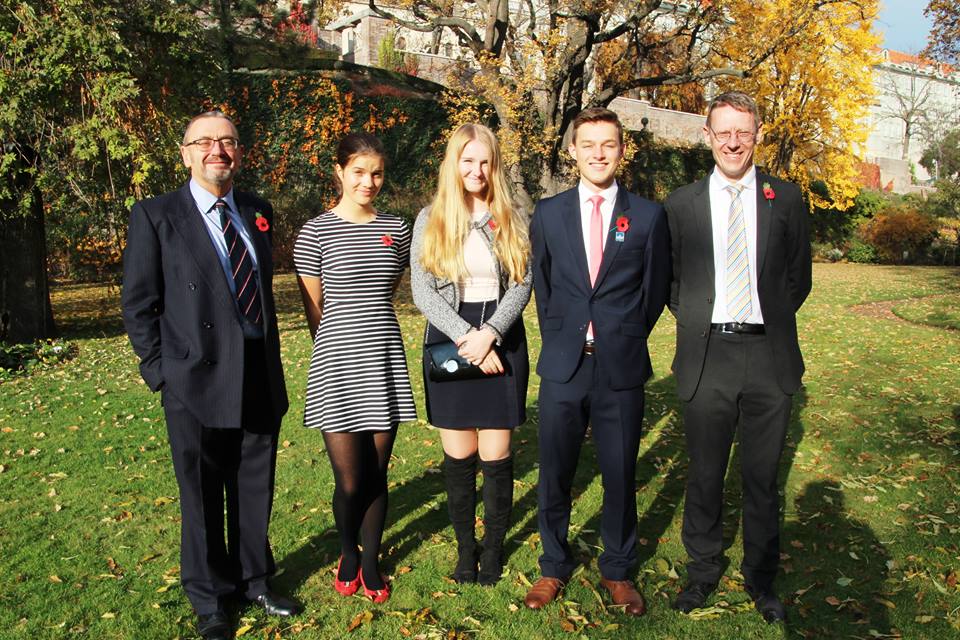ECP students saw their history books come to life last week. They all study the horrors of the Second World War and visit Terezín to see where the Nazis held Jews, Roma and ‘political’ prisoners, many of whom were transported from there to Auschwitz. In total, more than 150,000 Jews were sent to Terezín, including 15,000 children. One of these children came into school last week. Her name is Doris Grozdanovičová.
Transported from Brno
Mrs Grozdanovičová recounted how at first, when the Germans invaded Czechoslovakia, she was happy. “We were happy because there was no school!“ But things in Brno, where she lived, soon changed and in 1942, she was rounded up with her family and transported to Terezín.
She recalled her years in the camp, where she was from 16 to 19, the age of many ECP students. Despite all the deaths and terrible conditions – around 33,000 people died in Terezín – Doris Schimmerling, as she was then, survived. She considers herself to have been very lucky. Many of the prisoners had to work in the laundry or the kitchens but she is well known for her job in Terezín where she looked after the sheep. This photo of her – the only one to come out of Terezín – shows her with them. She now has over a thousand toy sheep in her flat, which well-wishers around the world have sent to her.
Everyday Life in Terezín
She had to work from 7am to 5pm. But she managed to take a book out into the fields with her and she says that although it was hard during the winter and she suffered from frostbite, she thinks that working outdoors made her more resistent to the diseases that were endemic in the camp.
She told the students about the friendships she had with other girls in the camp and how important they had been to her. She also talked about about the secret synagogue that existed in Terezín and offered to accompany them on their school trip to the camp to show it to them.
Liberation
By the autumn of 1944, she was alone in Terezín. Her mother had already died in the camp. Her father and brother, Hanuš, had been sent on one of the last transports to Auschwitz. But just before the camp’s liberation, a Czech gendarme, Josef Urban, who worked in camp, offered to adopt her, as his own daughter had died three years earlier. The adoption never happened, but she still visits Josef Urban’s relatives today. Although their father died in Auschwitz, Hanuš survived and together, they went back to Brno. They both returned to their studies and she graduated from Masaryk University with a degree in English and Philosophy.
Life in Prague
Mrs Grozdanovičová then moved to Prague and worked as an editor with a publishing house and used her English and German translating and interpreting. She is a member of the Terezín Initiative and an executive editor of its magazine. She frequently visits schools to tell her story and we were honoured that she shared it with our students. Eye witness accounts are very important and the ECP regularly invites into school people with important stories to tell.
Her son, Jan Grozdanovič, is one of ECP’s Governors.
